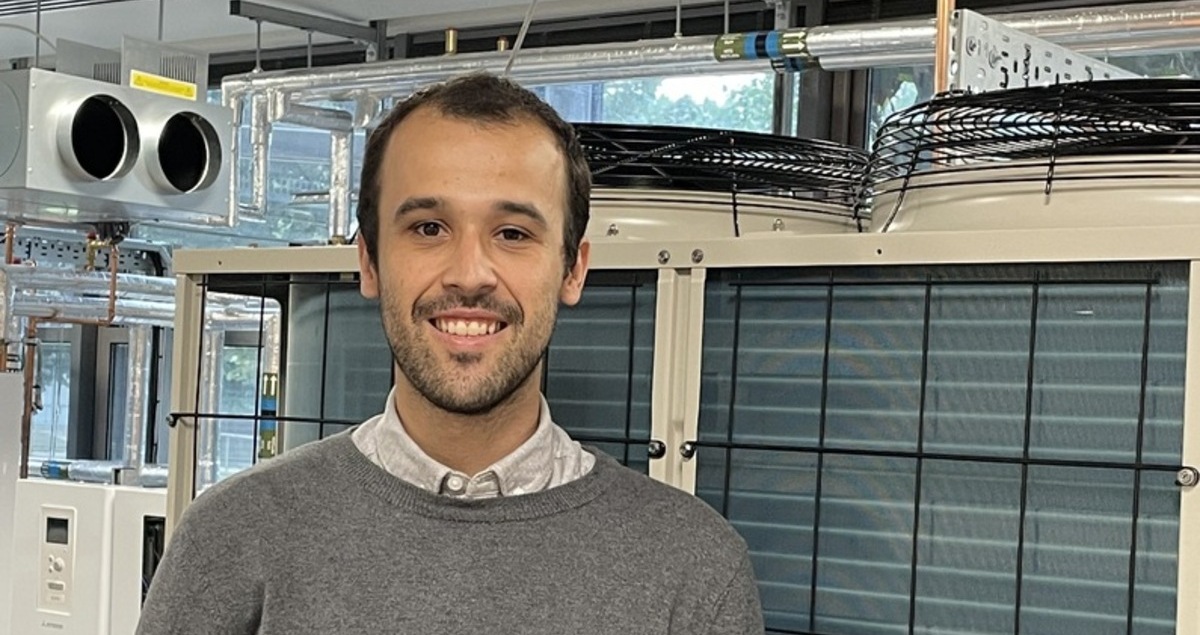Five jobs helping to create a carbon neutral world

What do you want to be when you grow up? It’s a common question asked of young children, but today many of the jobs they will perform don’t yet exist.
Renewable power generation technologies are becoming important creators of new jobs as the energy transition accelerates the drive for sustainability. The International Energy Agency’s (IEA) Net Zero in 2050: A roadmap for the global energy system report outlines a detailed global action plan for achieving net zero CO₂ emissions by mid-century, which will have a big impact on the sorts of future employment opportunities available.
Here’s a snapshot of some emerging jobs that are helping to transform the energy sector.
E-fuels engineer
Electrofuels offer sustainable, synthetic “drop in” alternatives to fuels like diesel and gasoline. As well as helping to decarbonize hard-to-electrify heavy transport sectors like shipping, road haulage and aviation, they also provide a means of storing surplus energy from renewables. The carbon intensity of electrofuels could be between 20-47% less than fossil fuels, according to a European Federation for Transport and Environment briefing.
As an electrofuels engineer for Mitsubishi Heavy Industries (MHI) EMEA, Steffen Schemme has been developing processes and concepts for alternative fuels for some time, and he is not alone. While the business case for electrofuels is a work in progress, jobs in this field are set to increase as the world seeks ever-cleaner alternatives to fossil fuels.
“Electrofuels use recycled CO₂, turning it from an unwanted exhaust gas into a useful feedstock,” explains Schemme.
“Working to develop new fuels that could help decarbonize sectors like energy, industry and mobility is fascinating, exciting and rewarding,” he adds.

Heat pump engineer
For several years, Rafael Fernandes has watched the sustainable heat market evolve.
He’s a technical sales engineer with Mitsubishi Heavy Industries Air-Conditioning Europe.
“I was attracted to the heat pump industry because the technology is good for the environment, which is a positive change for everyone,” explains Fernandes.“But, we also have to change people’s attitudes to new technologies.”
Global sales of domestic heat pumps reached 20 million in 2019, up from 14 million in 2010.
Much of Fernandes’ role involves supporting and educating distributors with their daily heat pump challenges. Educating people about sustainability is an essential part of the journey to net zero, as heat generation, which typically relies on fossil fuels, accounts for some 40% of all energy-based CO2 emissions.
Building owners investing in heat pumps pay high upfront installation costs, which can be recouped over time via reduced heating bills and lower emissions.
“We are providing a solution with low environmental impact. For every heat pump that is installed there is one less gas boiler,” Fernandes says.

Materials scientist
From his laboratory at Aachen University in Germany, materials scientist Johannes Sackmann is immersed in the molecular study of composites to future-proof pipeline networks.
The recent European Hydrogen Backbone report envisions a hydrogen infrastructure network of 39,700km connecting Europe by 2040, much of it using legacy infrastructure.
The research done by Sackmann’s team explores how composites can be used to coat existing steel natural gas pipelines, repurposing them to transport cleaner fuels like hydrogen. He is also working to create fully composite pipelines to complement the current network, which are cost-effective, durable and capable of withstanding the high pressures needed to carry hydrogen without leaking.
“I really enjoy helping my team develop new innovations. It’s very rewarding to work alongside the next generation of engineers on solutions to current and future energy challenges,” says Sackmann.
“I think there will be more materials scientists like me in future, because the market for composites is growing steadily alongside the need for sustainability,” he adds.

Process engineer
Unlike some sectors, heavy industry processes like steelmaking are notoriously difficult to electrify, so finding low- or zero-carbon production processes is essential to cut emissions. The iron and steel industry accounts for 7% of global emissions from the energy system and more than a third of all industrial sector emissions.
Working as a process engineer for MHI Group company, Primetals Technologies, Katharina Schwarz is dedicated to designing effective processes to reduce the carbon footprint of iron and steel industry plants.
Her work focuses on dedusting: collecting the off gases produced during a chemical reaction in metallurgical plants, treating them and releasing them into the atmosphere in a clean and safe condition.
“The highlight for me is that I get to work on lots of R&D projects, where new developments are taking place, new processes are worked out, which can positively impact the iron and steel industry,” says Schwarz.
Making iron and steel has relied on the same essential processes for hundreds of years, but Katharina is one of a new breed of engineers that understands change is essential to reach our climate goals.
“It’s personally rewarding to know that my engineering work dedusting plants is part of the solution and not part of the problem,” she explains.
Green investor
As a green investor, Ricky Sakai spends his days absorbing details of new technologies and searching for the next big energy breakthrough.
He’s part of the Mitsubishi Heavy Industries America incubator investment team based in the energy-hub state of Texas. The team identifies promising clean – or climate tech – energy start-ups with commercially viable growth potential. Strategic partnerships are formed with promising innovators to help accelerate and scale new technologies.
Global clean energy investments reached $282.2 billion in 2019, and $54.6 billion in the US alone, up 28% on the previous year, according to the United Nations Environment Programme. With such huge sums of money needed to make net zero a reality, an energy investor’s role is increasingly important.
Investments range from developing hydrogen projects to expanding the CO2 value chain, but always with an eye on being able to scale up rapidly.
“The energy transition presents a unique opportunity for industry and investors to adopt a global collaborative approach to finding ways to decarbonize the energy sector,” says Sakai.
“It’s important to have an agile mindset and stay curious about different technologies. I always adopt a broad view instead of sticking to a specific theme or topic, in order to stay relevant, which is a key motivator for my work,” he says.
Discover more about MHI’s 2021 Medium-Term Business Plan progress




